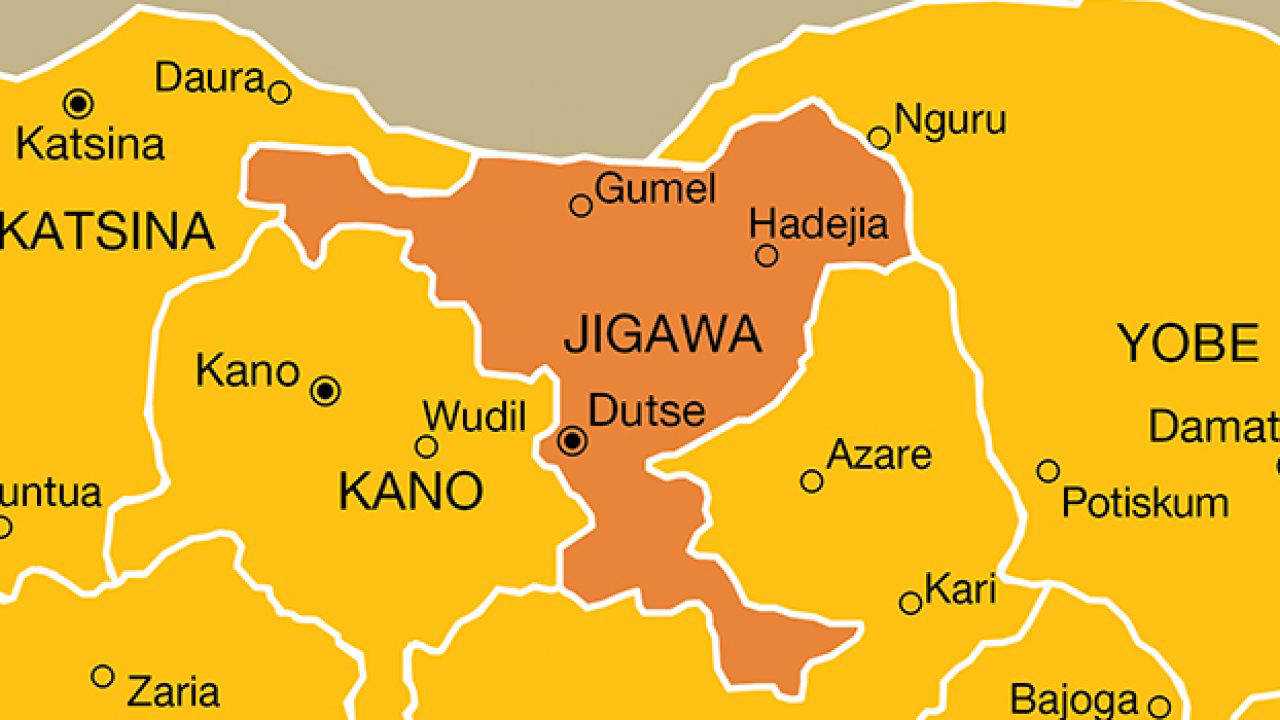Isah Dahiru
As human activities increase, the world is undergoing rapid changes which result in the melting of glaciers across the globe. Consequently, the world is faced with climate change at an unprecedented level. From monsoons in Southeast Asia to hurricanes in America and droughts in Africa, receding and surging water flows have become the cycle of people’s lives. In 2021, the Emergency Event Database (EM-DAT) recorded 432 disastrous events related to natural hazards worldwide. Overall, these accounted for 10,492 deaths, affected 101.8 million people, and caused approximately 252.1 billion US$ of economic losses.
Jigawa State and some states in the northern part of Nigeria have been hit disproportionately hard by the fallout from climate change, which has aggravated droughts, and flooding and posed a great challenge to lives and human activities. An unsubstantiated data source revealed that, in this year alone, not less than 1,466 deaths have been recorded in the northern part of Nigeria due to flooding.
This flooding has destroyed power lines, roads, houses, and telecommunication infrastructure. More than 60,000 houses were gutted to merely nothing and hundreds of thousands of people are living a stranded life, among which 73 per cent of these numbers are women and children. They lived now in isolated camps, devoid of portable water, prone to dangerous insects and mosquito bites, and above all, the system has forcefully accorded them all sorts of social vices.
The northeastern axis of Jigawa State comprises eight local government areas. The region happened to be the most flood-ravaged, resulting in the loss of lives and massive destruction of food crops. Climate change has direct impacts on food systems and food security and as such, the 2022 floods, which have affected this region where a majority of them are farmers, pose bad news for food security. And the World Food Programme and Food and Agriculture Organisation have said the food security situation in Ethiopia, Nigeria, South Sudan, and Yemen is highly concerning.
As the effects of climate change continue to worsen around the world, it will have a major impact on food production and far-reaching implications for food security. This will further complicate fragile food security systems that are already impacted by local conflicts. Agriculture is simultaneously a major contributor to climate change, and a victim of it, as flooding around the world shows. Recent events should make clear the need for urgent and concerted actions by countries to reverse climate change and build climate resilience.
Since August 10, 2022, abundant rains are being recorded over localised areas in Jigawa State, with a total amount of rains exceeding 100mm per day so far. Floods have also started to be recorded in some parts of the area at risk, mainly in Auyo, Malammadori, Taura, Ringim, and Miga Local Government areas of Jigawa State. Flash floods started, houses were gutted, children drowned on daily basis, and some other unforeseen events. The Nigeria Hydrological Services Agency (NIHSA)’s Annual Flood Outlook (AFO) predicted that 233 Local Government Areas (LGAs) in 32 states of the federation and the FCT fall within the Highly Probable Flood Risks Areas, while 212 LGAs in 35 States of the Federation including FCT fall within the Moderately Probable Flood Risks Areas. (IFRC, 29 July 2022)
As we look to prepare for the upcoming challenge ahead, having a clear picture of the flood patterns in problem areas will allow for a more efficient and straightforward strategy when dealing with the rising waters anticipated in the 2030s. Internet of Things (IoT) solutions and long-range, power-lower connectivity play key roles in helping communities prepare for this increase in flooding. With early-warning flood sensor networks, communities can get real-time information on many aspects involved with the rising flood levels from the timing and location of a flood to how deep the water may be and its changing conditions.
The governments, especially state governments that are seasonally been affected by this disaster need to stand up and end these humanitarian crises. The bridges, the damaged roads, houses, and schools destroyed will cost billions of naira for them to go back to their original selves. With the advancement on the ground in geospatial science, technology trackers for hydrological movements, the creation of black holes for running water to be drawn back to an aquifer, and many innovative ways that can be used to prevent future occurrences, the government must be proactive at all times.
Understanding current and potential community vulnerabilities involve expensive mapping that needs to be kept up to date with changes in land use and areas of growth. By using IoT solutions to understand flooding patterns and problem areas, cities can take preventive action.
By implementing an edge-to-cloud IoT solution, emergency response teams can offer communities; monitoring flood conditions, by identifying weather trends, to provide timely insights regarding the magnitude of events, the impact of weather, and the location and magnitude of flooding. It can also provide accurate forecasting, and access to real-time flood data over a reliable, long-range to enhance monitoring and prediction of flooding events. There also have to be land development decisions on streams and flood plains. For example, Jigawa northeast has an abundance of water, causing mayhem year in and year out, while Jigawa northwest (Gumel, Babura, Suletankarkar, and Maigatari) are semi-desert and dry zones with arable land for agricultural activities, the state can decide to channel the water to these zones and save millions.
Dahiru wrote through [email protected]

 Join Daily Trust WhatsApp Community For Quick Access To News and Happenings Around You.
Join Daily Trust WhatsApp Community For Quick Access To News and Happenings Around You.


